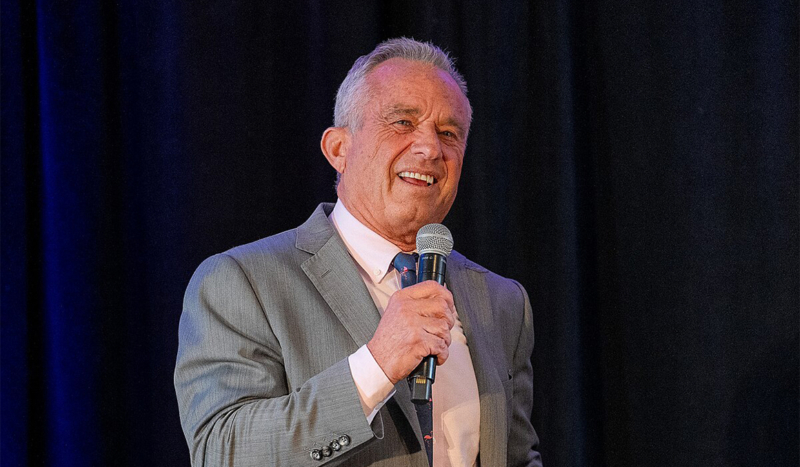
Democratizemedia / Wikimedia Commons
Department of Health and Human Services (HHS) Secretary Robert F. Kennedy, Jr. announced Wednesday he had appointed eight new members to the influential Advisory Committee for Immunization Practices (ACIP) – the group that makes recommendations to the Centers for Disease Control and Prevention (CDC) regarding the safety, efficacy, and “clinical need” for vaccines.
The move comes only days after Kennedy retired all 17 sitting members of ACIP as a deliberate sign his agency is “prioritizing the restoration of public trust above any specific pro- or anti-vaccine agenda.”
“The slate includes highly credentialed scientists, leading public-health experts, and some of America’s most accomplished physicians,” Kennedy announced in a social media post about the new appointments.
“All of these individuals are committed to evidence-based medicine, gold-standard science, and common sense,” he declared. “They have each committed to demanding definitive safety and efficacy data before making any new vaccine recommendations. The committee will review safety and efficacy data for the current schedule as well.”
The new ACIP members are:
Joseph R. Hibbeln, M.D., a psychiatrist and neuroscientist who once served as Acting Chief of the Section on Nutritional Neurosciences at the National Institutes of Health where he led research on immune regulation, neurodevelopment, and mental health.
Martin Kulldorff, M.D., Ph.D., a former Harvard University biostatistician and epidemiologist and a leading expert in vaccine safety and infectious disease surveillance. Kulldorff joined current National Institutes of Health (NIH) Director Jay Bhattacharya, M.D., and Oxford Professor Sunetra Gupta in authoring the Great Barrington Declaration. The declaration argued against mandatory universal pandemic lockdowns and in favor of age-based focused protection for the elderly, while letting children and young adults live their lives normally. Kulldorff was forced out of Harvard for daring to dissent from the prevailing pandemic narratives.
Retsef Levi, Ph.D., is the professor of Operations Management at the Massachusetts Institute of Technology (MIT) Sloan School of Management and a key expert in healthcare analytics, risk management, and vaccine safety.
Robert W. Malone, M.D., is a physician, scientist, vaccine expert, and journalist known for his early contributions to mRNA vaccine technology. In his Substack column “Malone News,” he writes that he believes “the short cuts that the USG have taken in bringing the mRNA and the adenovirus vaccines to market for this pandemic have been detrimental and contrary to globally accepted standards for developing and regulating safe and effective licensed products.”
Cody Meissner, M.D., is a Professor of Pediatrics at the Geisel School of Medicine at Dartmouth and a leading expert in pediatric infectious diseases and vaccine policy.
James Pagano, M.D., is a board-certified Emergency Medicine physician with over 40 years of clinical experience following his residency at UCLA.
Vicky Pebsworth, OP, Ph.D., R.N., earned a doctorate in public health and nursing from the University of Michigan and has worked in the healthcare field for more than 45 years.
Michael A. Ross, M.D., is a clinical professor of obstetrics and gynecology at George Washington University and Virginia Commonwealth University.
Kennedy stated in his announcement that the new ACIP members will attend the committee’s next scheduled meeting on June 25.
On June 9, Kennedy spoke at the Cell and Gene Therapy Roundtable, hosted by the Food and Drug Administration (FDA), where he reiterated the basis of the Trump administration’s Make America Healthy Again (MAHA) plan: “We need to transform ourselves to a health care system rather than a sick care system.”
“[I]n order to do that, we need to … unravel all these perverse incentives,” the secretary continued. “But really, this whole agency … our whole healthcare system is a bundle of perverse incentives, where people make money by doing bad things at every level: the doctors, other providers, the hospitals, the pharmaceutical companies, the insurance companies – all make money by keeping us sick.”
“And we need to fundamentally change that so that we are focusing on curing disease, and making people better,” Kennedy asserted. “And the way that we’re going to do that is by unraveling those incentives and really focusing on curing disease.”
